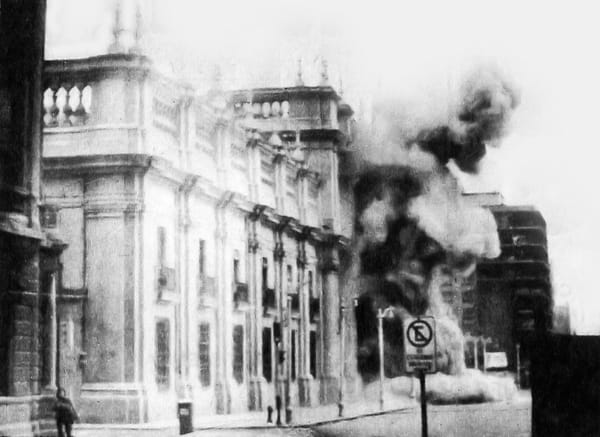Monday marks the 50th anniversary of the bloody coup that ousted Salvador Allende, the democratically elected socialist president of Chile, and ushered in a brutal military regime that came to be known for torture, murder, and international terrorism—as well as for imposing a radical free-market economic model. Today, the United States claims to pursue a foreign policy guided by values such as sovereignty and democracy, while using its military and economic might to meddle in the internal affairs of other nations. Regrettably, the role played by the US government in crushing Chilean democracy remains all too relevant.
Just days after Allende was elected to the presidency on Sept. 4, 1970, President Richard Nixon and Secretary of State Henry Kissinger decided that Allende had to be neutralized by any means necessary. As Christopher Hitchens wrote in The Trials of Henry Kissinger:
A series of Washington meetings, held within 11 days of Allende’s electoral victory, essentially settled the fate of Chilean democracy. After discussions with [Coca-Cola president Donald] Kendall, with David Rockefeller of Chase Manhattan, and with CIA director Richard Helms, Kissinger went with Helms to the Oval Office. Helms’s notes of the meeting show that Nixon wasted little breath in making his wishes known. Allende was not to assume office.
In other words, even before Allende had taken office (which was scheduled to take place two months later), Nixon was determined to undermine Chilean sovereignty.
